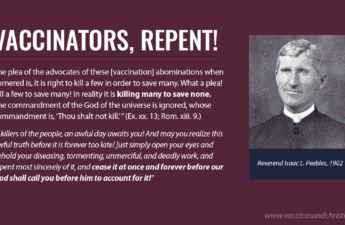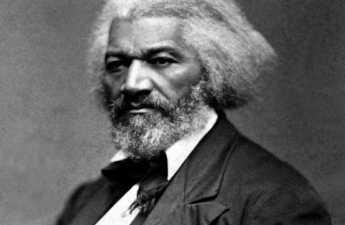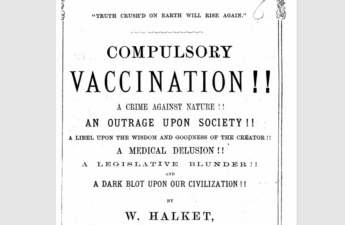
“Willem Bilderdijk … was the driving force behind the anti-revolutionary, orthodox-protestant ‘Revival’ movement in the early 19th century.”[1]
Willem Bilderdijk (1756-1832) was a Dutch poet, “a noted lawyer and the founding teacher of a private theological school at Leiden.”[2] He was an important figure in the Protestant revival in the Netherlands.
Against the backdrop of the French Revolution and its reverberations, a Protestant revival across much of Northern Europe became quite evident and influential at the turn of the century. In Holland the revival first took hold in aristocratic circles around Amsterdam and The Hague. One of the greatest Dutch poets, William Bilderdijk, rediscovered the glory of early Calvinism and helped to awaken others to its significance for Holland’s history.[3]
We must make this important disclaimer at the outset: while Bilderdijk may have been an important force in Protestant revival, if some reports about him are true, he may not have been a Christian. For instance, according to Joris van Eijnatten, Bilderdijk “hardly ever went to church,” and “his theology exhibits suspiciously heterodox leanings …”[4]
Regardless of whether he was actually a Christian (and we hope he was, considering the eternal ramifications), our interest with Bilderdijk here is that he is someone who was used by God as a voice to warn others against vaccination.
Christian Revival and Opposing Vaccination
Geurt Henk Spruyt further discusses Bilderdijk and the Dutch revival:
The practice of refusing vaccinations has a long-standing history within the Netherlands. … Shortly after Jenner’s discovery, the Dutch government and many municipal authorities took steps to promote smallpox vaccinations. However, the smallpox vaccination was quite dangerous and, due to technical deficiencies and negligence of hygiene, did not offer total protection. In 1823 Edward Jenner died, and this led to a flood of commemorative texts which praised him as the very picture of the Enlightenment. This caused irritation on the part of the ‘Réveil’, a circle of people advocating a Christen revival and opposing the thinking of the Enlightenment, who combined orthodox Protestant faith with care for the poor and the elderly people. One of them was Willem Bilderdijk, a poet with wide knowledge and a leader of the ‘Réveil’. Bilderdijk’s view was that the Enlightenment had a disastrous effect on church and society.[5]
Thus, consistent with Bilderdijk’s desire to bring about revival was his opposition to vaccination. And so, for Bilderdijk,
Vaccinations were part of ‘perverted scientific practices’ and he regarded the smallpox vaccination as ‘animal poison’.[6]
Bilderdijk on the Evil of Using the Pulpit to Promote Vaccines
In opposition to vaccines, Bilderdijk at one point noted the evil of using the pulpit as a means to promote vaccination:
God preserve us that we should recommend a vaccine and thereby misuse the Church’s pulpit and the position of a servant of God. Never the less anything is possible for Christians in these despicable times of restraint of conscience.[7]
An Anti-vaccine Poem
In a poem in honor of fellow vaccine opponent Abraham Capadose, Bilderdijk thanks him for combating Molech worship. Here Bilderdijk appears to be referring to vaccination, which, being deadly, is a form of human sacrifice:
Thank you, my Friend, in the name of Religion and Conscience,
For the shield, taken up in the implacable battle,
To ward off the brute force that, forgetting God and obligation,
Throws innocent offspring in the infernal Moloch’s arms.[8]
Takeaway
The first thing we can say about Bilderdijk is that, while he was a fervent opponent of vaccination, as we noted earlier, it is possible that he was not an actual Christian. Whatever the case, we must note that being anti-vaccine (as important as that is) is not enough to be saved. Salvation is found in Christ alone, not in opposition to vaccines.
Those of us who are Christians in the anti-vaccine movement must also be careful not to be seduced by the worldviews of non-Christians whom we work alongside of to oppose vaccination.
In His providence, however, God uses Christians and non-Christians alike to oppose the evils of vaccination. And so, regarding vaccination itself, Bilderdijk was an important example for others to follow. It seems likely that he influenced the Seceder clerics of his time to oppose vaccination:
[H]e and Capadose, a medical doctor, opposed the government-mandated smallpox vaccinations for school children. Virtually all the Seceder clerics later adopted this same anti-vaccination position, which caused their children to be barred from school.[9]
According to an author, Bilderdijk would later change his position on vaccines after his son died from smallpox.[10] I would want to confirm this to be sure, however, but no source is mentioned by the author. Such a position is puzzling, as it seems Bilderdijk would have been aware of the fraudulent nature of vaccines.
Nevertheless, considering all the evils that vaccination has been responsible for, regardless of which position Bilderdijk finally affirmed, his example and efforts against vaccination appear to have planted important seeds in the historical “Dutch Christian Resistance” to vaccination. And are a model for us today.
Imagine what one person can do. Imagine what you can do. Fight the good fight against vaccination.
Notes
_________________________________________________
[1] Diederik Grit, “Scandinavia’s Image in the Roman Catholic Netherlands,” in Alan Swanson and Egil Törnqvist, editors, Yearbook of European Studies, Volume 10: Europe, the Nordic Countries (Amsterdam: Rodopi, 1998), 87.
[2] Robert P. Swierenga and Elton J. Bruins, Brothers’ Quarrels in the Dutch Reformed Immigrant Churches in the Nineteenth Century: The Pillar Church Sesquicentennial Lectures, 1997 (A.C. Van Raalte Institute, Hope College). Retrieved February 14, 2019, from http://www.swierenga.com/BrothersQuarrelsBook.html
[3] James W. Skillen, “From Covenant of Grace to Tolerant Public Pluralism,” in Daniel J. Elazar and John Kincaid, editors, The Covenant Connection: From Federal Theology to Modern Federalism (Lanham, MD: Lexington Books, 2000), 79.
[4] Joris van Eijnatten, “Vestige of the Third Force. Willem Bilderdijk, Poet, Anti-Skeptic, Millenarian,” Journal of the History of Ideas, vl. 62 (4/1/2001), 2.
[5] Geurt Henk Spruyt, “Politicians and Epidemics in the Bible Belt,” Utrecht Law Review, Volume 12, Issue 2 (June) 2016 (accessible at https://www.utrechtlawreview.org/articles/abstract/10.18352/ulr.349/), 115.
[6] Ibid.
[7] “CC Callenbach, a Reveille Preacher” (First published in the family-magazine “The Prophet of the Velue”, nr. 74, autumn 2006). Retrieved September 29, 2019, from http://www.callenbach-meerburg.nl/Website%20Callenbach%20Engels/Verhalen-Eng/cc_callenbach,%20a%20reveille%20Preacher.htm
[8] Kalmijn, Capadose, 151. Cited in Gerrit J. TenZythoff, Sources of Secession: The Netherlands Hervormde Kerk on the Eve of the Dutch Immigration to the Midwest (Grand Rapids, MI: Wm. B. Eerdmans Publishing Co., 1987), 169.
[9] Robert P. Swierenga, Elton J. Bruins, Family Quarrels in the Dutch Reformed Churches in the Nineteenth Century (Grand Rapids, MI: Wm. B. Eerdmans Publishing, 1999), 15.
[10] Spruyt, “Politicians and Epidemics in the Bible Belt,” 115
If you find this site helpful, please consider supporting our work.


